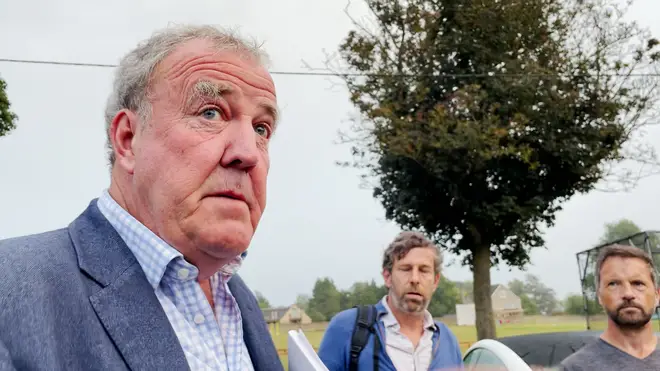
Shelagh Fogarty 1pm - 4pm
6 October 2022, 13:48

Jeremy Clarkson has been ordered to close the cafe and restaurant at his farm after council officials claimed his business is breaching planning laws.
The former Top Gear star's eatery on Diddly Squat Farm in Chadlington, Oxfordshire, was opened in July, months after two previous applications were rejected.
West Oxfordshire District Council (WODC) said the addition to the farm was "unlawful" and that its "nature, scale [and] siting is unsustainable and incompatible with its countryside location within the Cotswold Area of Outstanding Natural Beauty".
When he first opened the restaurant, Clarkson told the Sun: “We had planning permission turned down but we’re opening anyway.
“Everyone at Diddly Squat has spent the last three months becoming an expert in planning regulations and we’ve found a delightful little loophole."
Clarkson said he'd found an old barn in one of his fields and that he told WODC that he was planning to turn it into a restaurant.
An enforcement notice against the farm - as seen in Amazon Prime documentary Clarkson's Farm - was served an enforcement notice on August 12.
READ MORE: Home Office suspends ex-Met officer for racist Whats App chat

READ MORE: Nurses start voting on whether to strike after record-breaking numbers leave the profession
Council officials gave the farm six weeks to carry out a host of measures, including removing all mobile toilets, tables that would be used by diners and other dining-related materials.
WODC also ordered the farm to stop selling products that aren't produced in the farm or are not made within 16 miles of the site.
In a statement, the authority said: "Council officers have worked with the owner and planning agents of the business, over many months, to investigate breaches in planning control, advising on how the business can be operated in a lawful way and trying to reach a solution.
"The business continues to operate outside the planning permissions granted and advice has been ignored. The activity has also had a significant impact on the local community."
Agents representing the farm said some of the requirements were "excessive" and that the six-week period to undertake changes was too short, claiming six months would be more reasonable.
They denied that planning laws had been breached and said a map served by the council was inaccurate, arguing that the notice should be scrapped as a result.
Clarkson's appeal has been accepted and representations must be made in the coming weeks.